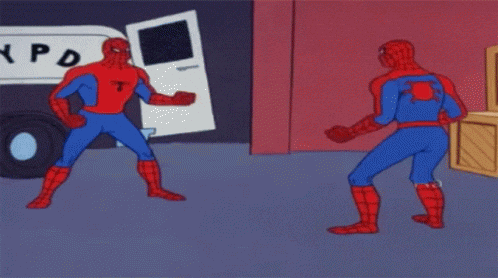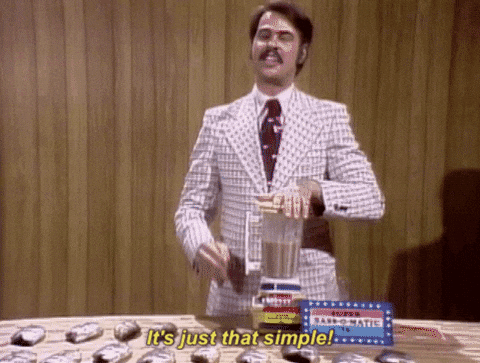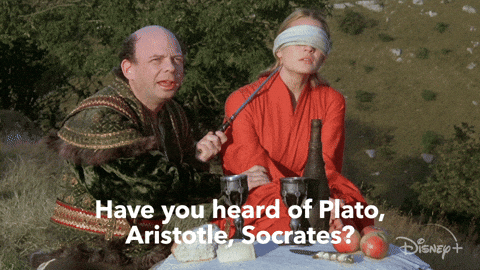Look 117: It isn't nice
Fellow angler,
Today we discuss something that is important to me but that I don’t often bring up in public conversation: politics.
I’m not going to talk about U.S. politics. This is a different kind of political discourse. Please take a moment to let your heart rate and blood pressure go back down.

Novel editing and I remain at an impasse, but a thought I’ve struggled with while writing and editing is how political I want my novel to be.
I didn’t set out to create a political novel. Initially, my only goal was to write a good story about an interesting character who’d been hanging around in my head long enough to annoy me. But as I wrote more, the story naturally moved in what I would consider a more political direction.
Sometimes it was conscious: I created the characters, settings, and plot. It’s only natural that my perspective would come out in my writing. Sometimes it was unconscious: I looked back and was surprised to find that passages that felt like simple space fillers came out looking more critical of capitalist work culture than I had intended to write.
Before we go further, though, it’s worth taking a step back to make sure we’re all talking about the same thing.

Paging Merriam-Webster
What does it mean for something to be political? In the U.S. people primarily use “politics” or “political” in the sense of party politics, elections, and candidates for government office. My read is also that in recent years, politics has come more specifically to equal racial and identity politics.
Those uses are all quite restricting. They cause us to view so many human relations through the lens of a specific governmental structure (and specific politicians) that we have created and then opted, as a populace, to reinforce.
Our good friends at Merriam-Webster also define politics as “the total complex of relations between people living in society,” as well as the “opinions and sympathies of a person.”
Those ideas more closely capture what I consider political, so the basic definition of politics I’m using in this post is something that concerns the opinions and experiences people have while living as part of society.

Wherefore art thou, political novels
I believe the average American would argue that the arts and politics should be separate. That there is no place for politics in art or literature. That novels which rank among the best of the best go beyond politics by telling a universal and eloquently written story.
As I started writing my novel, a novel which I hope will earn me great praise and recognition, this goal was clear in my mind: Write a universal story about realistic characters and avoid making overt political points.1 But as I said earlier, things still felt like they were moving in a political direction as I put more words on paper.
My novel is about a dead man who’s forced to work for years in a job he doesn’t particularly want or like. Writing about people and a world within that premise naturally led me to explore ideas and express opinions about the ways our society’s capitalistic work culture (and maybe more specifically the tech startup work culture that I know best) is bad for people. I think we could all agree that the previous sentence sounds decidedly political. But it also feels to me like a universally understood story that remains true to the characters I’ve created — characters who I believe feel real.
So have I already gone too deep into the political for the average book reader to enjoy? How could I even know?
While asking myself such questions, I recently stumbled upon Comforting Myths on a bookstore display. It’s a short book of essays by Rabih Alameddine. There are three essays, though the eponymous essay is the star attraction and is the only one worth the price of admission (though it is worth it).
A book distilled
One of Alameddine’s basic arguments in his essay, Comforting Myths, is that “Humans are inherently political in their interactions. Therefore, writing about the human condition is political.” How, he asks, could a novel that exalts or denigrates a certain way of life, any way of life, not be political? (It’s worth noting his definition of politics is similar to the one I gave earlier.)
Yet so many people either dislike or fear what they consider to be political novels. They maintain that art and politics should remain separate. Which brings us to another of Alameddine’s key points:
“The only way you can think that politics is separate from literature is if the political system is working for you.” He admits this idea can perhaps be stated more diplomatically, politely, or palatably for certain ears, but I say it’s hard to argue with the basic thought.
As further explanation, he says:
“When writers belonging in the center of the dominant culture write about their daily lives…their work is considered not political.”
“When writers belonging to the margins of dominant culture write about their daily lives…their work is considered political.”
An example he makes is that a novel about a doctor who moves to a small town and is beaten up by drunks upon arrival is likely considered not political, but a novel about an immigrant who moves to a small town and gets beaten up is likely considered political.
One of the closing questions Alameddine poses is, "Does the public consider a work to be political when that work — that novel, poem, painting — asks the public to bear the burden of reality?”
If you’re being asked by a novel to think about or confront life as it is for any subset of the population, will you automatically view that novel as political?
It seems to me that for the average person in the U.S. the answer is yes. In that case, whether or not my novel is perceived as political will likely come down to my skill in the art of subtlety. Regardless of my true intentions, if I can write beautifully enough that people interpret my words as a story about themes and characters with whom they can identify, then I have a good chance to push my novel beyond the label of a bad political novel and into palatable literature.
Now, I could be in trouble when it comes to beauty because I don’t always write the most good. Luckily, I also lack the skill to reveal any sort of unique political truths. So in all likelihood, my writing will fall somewhere in the middle of all this and no one will really care about the politics of my novel. But make no mistake, it will be a political novel.

Title song
Today’s title is the same as today’s title song: It Isn’t Nice by Malvina Reynolds. She was a decidedly political folk singer. I enjoy her music but also find her inspirational because she didn’t find music until middle age and didn’t write her most (commercially) successful songs until she was in her 60s. Oh and when she was in her 70s, she appeared in a handful of Sesame Street episodes. Check, check, and check.
Until next time,
Happy fishing!
Reading this back, it sounds comical. You want to be a great novelist? Just write a universal story with realistic characters. What could be easier than that? ↩
-
Whether you write something political or apolitical really has no bearing on anything. The reader will interpret the way the reader wants to interpret. Have you ever been to a book club? I have wondered at times whether we all read the same book.
-
This isn't my favorite of your newsletter posts...it's too political! :-b Connie is right, people will read into things based on their own beliefs. Those who have difficulty accepting reality will slap labels onto things where they do not belong. Just write that great story with believable characters and we'll love it!
Add a comment: